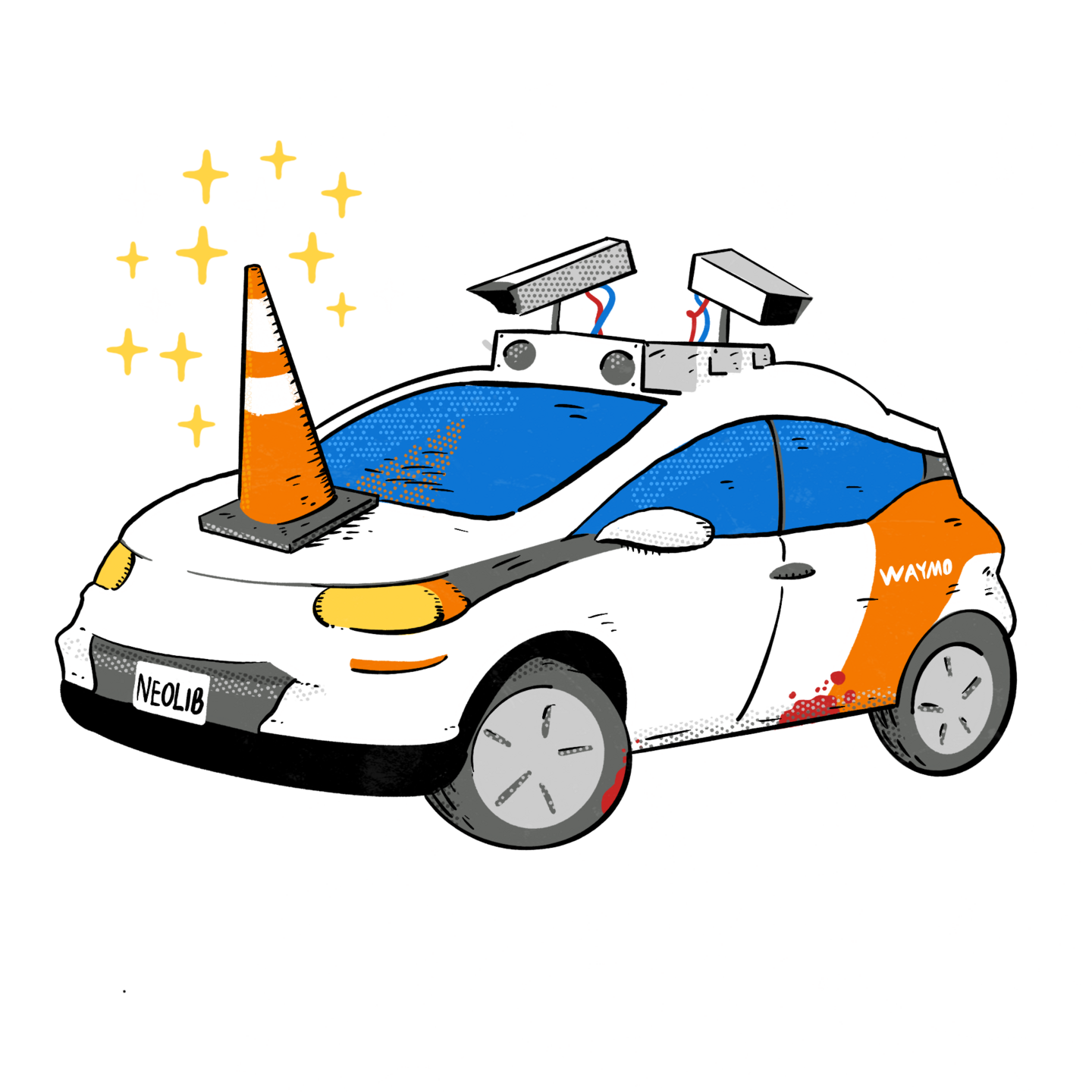
SF Chronicle – A Waymo robotaxi killed a beloved S.F. cat. Now a city supervisor wants driverless car reform
See original article by Rachel Swan at the SF Chronicle
With outrage building over the death of “KitKat,” a feline struck by a Waymo in San Francisco’s Mission District, a city supervisor has called for legislation allowing counties to ban autonomous vehicles.
The resolution that Supervisor Jackie Fielder plans to introduce Tuesday would urge state leaders to change how this ride-hail technology is regulated, by enabling local governments to put the matter to voters.
“Here in the Mission, we will never forget our sweet KitKat, (and) we will always put community before tech oligarchs,” Fielder said in an Instagram reel, in which she blasted Waymo not only for killing an animal, but for causing congestion, collecting users’ data and undermining public transit.
Inspired by a moribund state Senate bill that would have allowed for local control of robotaxis, Fielder’s resolution illustrates a renewed skepticism of the vehicles, which have become embedded in San Francisco’s landscape. As Waymo expands to cities across the country other companies, including Zoox, Tesla and Uber, are jockeying for position in the Bay Area market.

Currently, companies need to secure six state permits from the Department of Motor Vehicles and the California Public Utilities Commission before they can provide passenger service in vehicles that are run entirely by sensors and software, with no human at the wheel. If the state were to empower voters to bar vehicles from individual counties, it would be much more difficult for these companies to create a regional network. Such county-by-county restrictions could also disrupt service to major hubs, like the San Francisco International Airport.
Desire to manage AVs at a local level is “not new,” said Brad Templeton, a self-driving car consultant based in Sunnyvale. While he somewhat empathized with city politicians’ frustration, he said the AV industry would never work if every player had to follow an intricate and piecemeal set of regulations that changed at every county line.
“You’d get a pretty complicated patchwork,” Templeton said. “Maybe you could pick (a robotaxi) up at Daly City, but then you could only ride it to Colma.”
Although self-driving cars initially sparked fear, curiosity and stunts aimed to incapacitate them, they gradually gained acceptance from residents and city leaders. But that fragile trust foundered after a series of high-profile mishaps, including a traffic stop in San Bruno, where a Waymo made an illegal U-turn.
Late at night on Oct. 27, a beloved bodega cat scurried under a Waymo that was pulling away from the Roxie Theater on 16th Street. The car ran over “Kit Kat,” shocking bystanders. One witness filed a 311 complaint saying the autonomous vehicle “did not even try to stop and hit the cat at fast speed.”
“The poor thing crawled ten feet back to the sidewalk and suffered a horrible, horrible, long unaliving,” Fielder said in her Instagram reel.
Representatives of Waymo have since tried to make amends with community members who loved the 9-year-old tabby, long a de facto doorman of Randa’s Market next to the Roxie. Store patrons knew him, affectionately, as “the Mayor of 16th Street.”
Emphasizing that trust and safety is the company’s “highest priority,” Waymo staff sent condolences to the cat’s owner and community members in an Oct.30 statement. Waymo also pledged to make a donation for an undisclosed amount to a local animal rights organization in honor of KitKat.
Meanwhile, fans have formed a makeshift shrine at the site of the crash, filling it with votive candles, marigolds, handwritten notes and cat photos.
Whether that outpouring of grief could translate into fairly consequential legislation is unclear. But Fielder has already drawn support from the Teamsters, who are wary of the threat that AVs pose to professional human drivers. Members of the influential union will accompany the supervisor when she unveils her proposal outside Randa’s Market on Tuesday, before rolling it out at the Board of Supervisors meeting.
See original article by Rachel Swan at the SF Chronicle
